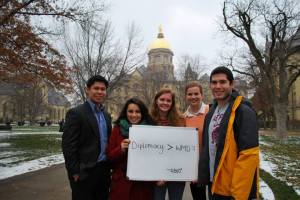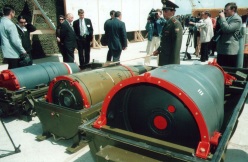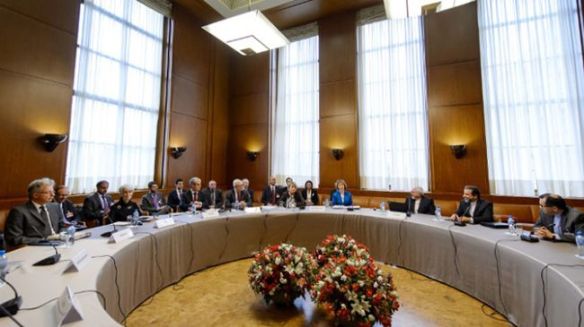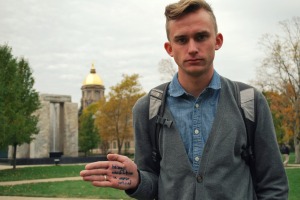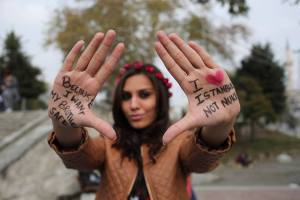I am a senior undergraduate student at the University of Notre Dame. I take classes in History and Peace Studies, I attend lectures on campus, I tailgate on football weekends.
And every day, I fight for a world without nuclear weapons.
This fight matters not just to me, as a student and as an American, but to young people everywhere across the globe. We are all united as a single generation. A generation that was born into a world darkened by the shadow of nuclear weapons, by the persisting threat of nuclear annihilation, by the knowledge that our governments hold the power to destroy thousands of innocent lives at the push of a button.
We never lived through the Cold War, but we are left with its ghosts. Those ghosts remain, buried in American silos and locked up in Indian storage facilities. Out of sight, but still a present danger.
I think that many times, my generation is viewed as self-absorbed and apathetic. We are dubbed the “Me Generation” by the media, the selfish millenials, the selfie generation. But in my experience, I haven’t found that to be true. When I think of my friends and classmates, I immediately think of their passion, of their commitment to make the world a better place.
Students are passionate about so many causes: helping the homeless, preserving the environment, de-stigmatizing the mentally ill. But in the event of a nuclear holocaust, there won’t be homeless to fight for. There won’t be an environment to preserve; it will be desolated by nuclear winter. Everything and everyone will be annihilated. All of these issues that we care so deeply about will simply go up in smoke.
This is why young people everywhere must fight for a world free from nuclear weapons. Because this is our world, our future. It is the only world we have.
Nuclear weapons have the potential to destroy that world, and all that is good within it.
Nuclear weapons cannot distinguish between a terrorist and a toddler, between a militant and a mother. They are indiscriminate weapons. As university students, we are taught to view lives as precious and to respect human dignity. We are taught that science should be a force for good in the world. These values are irreconcilable with the inherently indiscriminate and destructive nature of nuclear weapons.
So what can we do? How do we, as students, fight something so vast and terrible, something negotiated between state leaders, something seemingly beyond our control?
The answer: we take control. We take an active role in the fight. We shift this paradigm of nuclear weapons as an issue reserved for politicians and military leaders, and make it an issue for young people everywhere.
We are young and passionate. As students, we are fortunate to have an extensive network of professors, clubs, and resources to tap into. These networks are not limited to our university campuses; they extend across schools, across states, across entire oceans. We have the technology and experience to use social media to connect with advocates around the world. We can use these networks to build and grow the Global Zero movement, to spread the word that disarmament is possible.
We can combine our many voices into one, and with that one voice we can demand change from our leaders.
Alone, we may feel helpless in the face of nuclear weapons, but together? Together we are an unstoppable force. Together, we can win this fight.
I really, truly believe that we –the students, the young people of the world– are the generation that will bring about Global Zero’s vision: a world without nuclear weapons.

